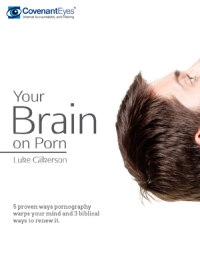Are Embryos Human After All?
16May 9, 2013 by mattfradd
Let me propose a thought experiment that is often used by pro-abortionists such as, Ellen Goodman. I was introduced to it by pro-life apologist, Scott Klusendorf.
Suppose a research lab is on fire and it’s about to collapse. On one side of the room is a new born baby, on the other side is a vial of twelve frozen embryos. You’ve only got time to save one or the other.
Which is it going to be?
Let me tell you what my decision would be, and what I think your decision would be too.
It would be the baby.
Aha! Says Goodman. You see? This proves that you don’t believe that embryos are human after all; if you did, you would have saved the twelve over the one.
Is Goodman right? Not at all.
Choosing to save one human being over another (or others) does not prove that those left behind are not human! All it proves is that our emotions and duties to some human beings are going to be different to others.
If I were in a burning building and had the chance to save either my one year old daughter or a room full of strangers, I’d save my daughter. Does it follow, therefore, that those strangers weren’t human? Obviously not.
Here are three other examples proposed by Ramesh Ponnuru to show the ridiculousness of the dilemma:
If I were in a burning building and in one room was a five-year old child and in another were seven people in comas, who would I rescue?
If I were in a burning building and in one room was a five-year-old child and in another were two older women suffering from advanced cases of Parkinson’s disease, who would I rescue?
If I were in a burning building and in one room were five men and in another were three pregnant women, who would I rescue?
Obviously Ponnuru’s choice to save some while leaving others does not show that he knew, deep down, that those left behind were not human.
Ultimately the analogy is a false one, since, as Scott Klusendorf puts it, “the debate over embryonic stem cell research is not about choosing who we’re going to save—as in the case of the burning lab. It’s about who we’re going to deliberately kill to benefit us. Saving my own kid first is permissible. Shooting those left behind is not, even if it would increase my chances of escape.”











[…] Go to the Source: Matt Fradd […]
“Does it follow, therefore, that those strangers weren’t human? Obviously not.”
But would you feel the same amount of guilt over leaving behind the embryos as you would over leaving behind the room of strangers?
I wouldn’t. Because embryos are only potential life. And actual life has precedence.
“It’s about who we’re going to deliberately kill to benefit us.”
No, it’s about using what is going to be thrown away anyway after in vtiro fertilization.
“embryos are only potential life”? Your name says it all.
Forgive me. Potentially human. A clump of cells is not a human, and as long as it stays in a tube, it never will be.
That wasn’t my point. My point was that your comment is in direct conflict with what embryology has taught us, namely, that a human embryo is a whole living member of our species in the earliest stage of development.
Signed,
Another clump of cells.
“what embryology has taught us”
Perhaps embryology has taught you that. Or you have, rather, interpreted it to say that.
If I can freeze you and then bring you back with zero complications, then you can say you’re only a clump of cells.
“Every time a sperm cell and ovum unite a new being is created which is alive and will continue to live unless its death is brought about by some specific condition.”
E.L. Potter and J.M. Craig, Pathology of the Fetus and the Infant, 3rd edition. Chicago: Year Book Medical Publishers, 1975. p. vii.
————–
“[The zygote], formed by the union of an oocyte and a sperm, is the beginning of a new human being.”
Keith L. Moore, Before We Are Born: Essentials of Embryology, 7th edition. Philadelphia, PA: Saunders, 2008. p. 2.
———–
“The zygote thus formed represents the beginning of a new life.”
J.P. Greenhill and E.A. Friedman, Biological Principles and Modern Practice of Obstetrics. Philadelphia: W.B. Saunders, 1974. pp. 17, 23.
———–
“It is incorrect to say that biological data cannot be decisive…It is scientifically correct to say that an individual human life begins at conception.”
Professor Micheline Matthews-Roth
Harvard University Medical School
————-
“After fertilization has taken place a new human being has come into being. [It] is no longer a matter of taste or opinion…it is plain experimental evidence. Each individual has a very neat beginning, at conception.”
Dr. Jerome LeJeune
Professor of Genetics, University of Descartes
————–
“The beginning of a single human life is from a biological point of view a simple and straightforward matter – the beginning is conception.”
Dr. Watson A. Bowes
University of Colorado Medical School
Thank you, Dave. I was going to ask NotAScientist if he’d like me to send him a text book of embryology. This should help; provided he’s a scientifically minded bloke.
If that was science, I’d agree with it. It’s a bunch of peoples’ opinions of what science says.
No brain. No nerves. No organs. Sorry…not human. Not yet.
NotAScientist,
If you are going to take the position that an embryo is not human, you need to define what it is, and also to define when it becomes a human. Since the process of development of a human is gradual, there is no logical point following fertilization where one can truthfully say this being is fundamentally different than it was before. Even advocates of abortion like Peter Singer admit that.
Indeed I believe that the only intellectually honest position someone who is pro legalized abortion can take is to admit that abortion takes a human life but that it is okay to give priority to choice of the mother over the life of the child. Mind you I, and 90% of everyone else find that position to be abhorrent, which is why it is not stated publicly more often, but at least it would be honest.
NotAScientist, the problem with your argument is as MarylandBill said – there is no place where you can draw the line between human/not human without horrific ramifications (i.e. children are not humans), except for conception.
Choosing the existence of a brain/nerves doesn’t work. We have to begin by considering what is defined as a “brain”. Sure, there is the fully developed adult brain that most of us have. What about underdeveloped brains like those of mentally handicapped people? How about those who have had parts of their brains removed (http://www.webmd.com/epilepsy/guide/temporal-lobe-resection)? How about those born with no brain, a condition known as anencephaly (http://en.wikipedia.org/wiki/Anencephaly#Prognosis)? Most of these fetuses do not survive to birth, but if they we born, would you argue it is okay to kill them because they are not human, since they lack brain? I hope not.
In the developing embryo, the neural tube (which comprises of the cells that will gradually form all the parts of the central nervous system = brain + spinal cord) arises around weeks 2-3 (here is a micrograph of it http://www.springerimages.com/Images/LifeSciences/1-10.1385_1-59259-065-9_125-0). Is this enough brain to be human? Or is it enough brain when the neural tube subdivides into the prosencephalon, mesencephalon, and rhombencephalon (which are the same three divisions into which we categorize aspects of the adult brain)? This happens soon after the initial neurulation process. Or is it only enough brain to be considered human when you have a fully developed brain, like that of an adult? In that case, if we’re going by size of the brain itself, then anyone under the age of 7 is not really a human yet.
The point is, where do you decide how much brain is enough, or what actually constitutes a “brain”? There’s nowhere you can draw an absolute line and say “now it is a brain, a second ago it wasn’t”. All the cellular and molecular information needed to form a brain is present at conception. You might say, then, the embryo is not human between fertilization and the first beginnings of brain formation. The problem is, who can say when that starts? We know when we can see it begin morphologically, but on a molecular level, the processes that have a hand in brain formation are so interconnected we once again have no place to draw the line except at fertilization.
The above science (and it is purely science) tells me this argument doesn’t work.
Science has even classified single celled organisms like bacteria as “life forms”. If a primitive cell like bacteria’s is life, at least in the scientific world, there is and should never be a question that human life begins in conception. So like Matt said, “your name (NotAScientist) says it all”.
“If that was science, I’d agree with it. It’s a bunch of peoples’ opinions of what science says.”
Actually my friend, it is science not opinion. Science tells us when a new human being comes into existence.
“No brain. No nerves. No organs. Sorry…not human. Not yet.”
Now *this* is opinion. A philosophical one at that.
[…] Barnes, Patheos/Bad Catholic Feeding the Hungry – Kevin O’Brien, Waiting for Godot to Leave Are Embryos Human After All? – Matt Fradd Millennials, or Why TIME’s Subscriptions are Falling – Micah Murphy, T&C H. L. […]
Values Clarification at work again…
It still baffles me that no politician has come up with a bill to allow women to donate umbilical cord blood for stem cell research. I believe and I am not a scientist (couldn’t help myself) but that you have the same benefits from umbilical cord blood that you would using embryos in regards to stem cell research, but no controversy because a life is not being destroyed. When our children were born it was either pay to store the blood for ourselves or allow them to discard it. I don’t know, being a pro-lifer it just seems like a great alternative.